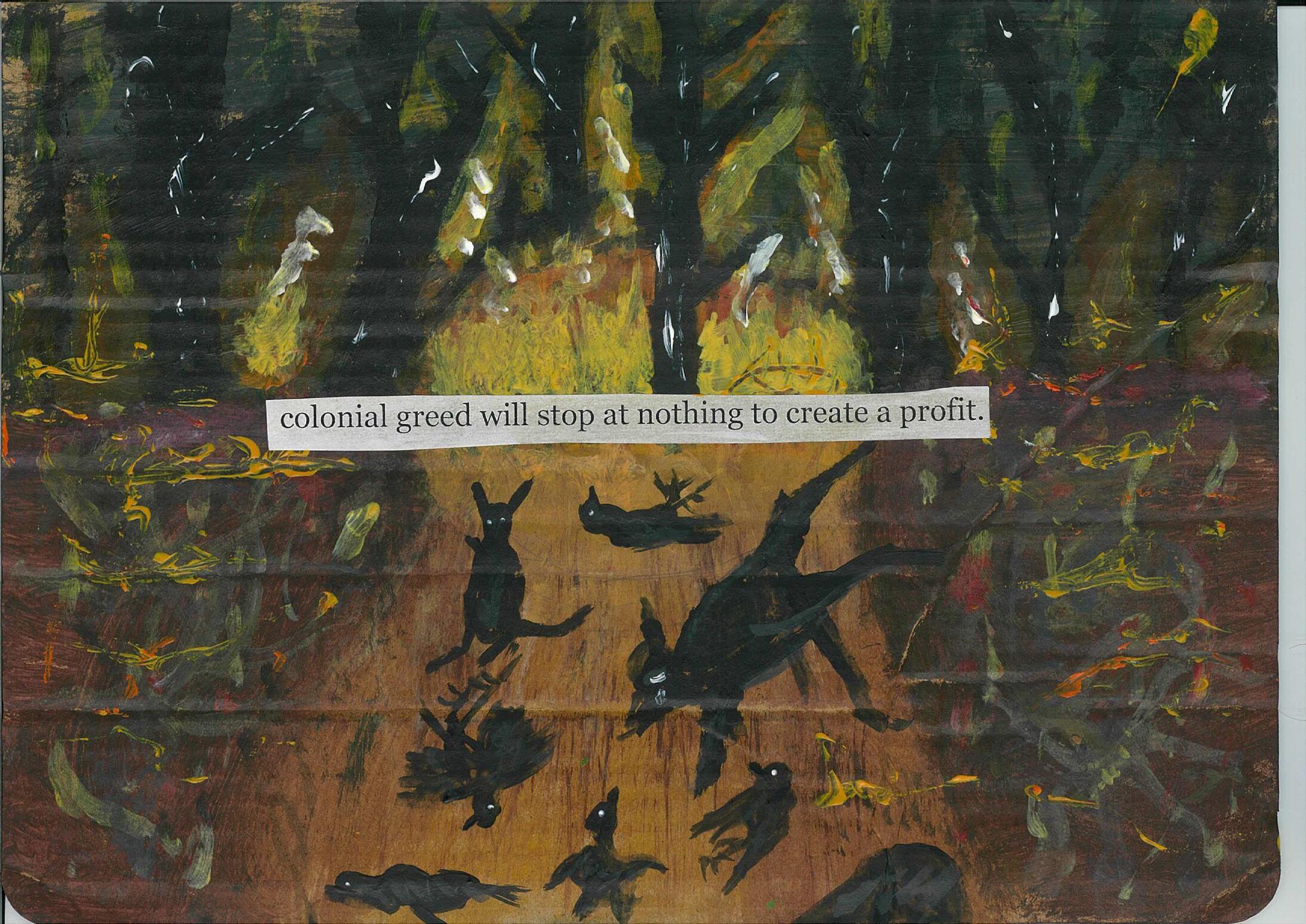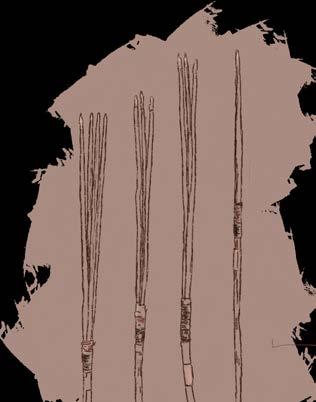
1 minute read
home after more than 250 years
museums as nothing other than engines of colonial theft, trickery and violence may appear to be bland and stubborn, they are inextricably tied to the genocide of First Nations communities and are irredeemable essences of empire. This characterisation is upheld by the behaviour and attitudes of institutions like the Chau Chak Wing and Cambridge – which at best demonstrate a misunderstanding, and at worst exhibit a wilful ignorance, of the deep spiritual and historical ties between First Nations communities and their cultural artefacts. The Kamay spears were used for fishing. Under the Gweagal’s system of kinship, communal hunting practices were crucial to the survival of their communities. When Cook seized the spears in 1770, he wasn’t just stealing a bundle of sharpened sticks – he was, in a very literal sense, stealing the vitality and the lifeblood of the Gweagal people.
While museums typically sermonise their importance as bastions of history and knowledge, and argue that objects of historical importance must be cared for by professionals, we know now that important artefacts are safer in the hands of Indigenous communities than they are in cultural institutions.
Advertisement
The Elgin Marbles, taken from Greece and held in the British Museum, were permanently damaged during “routine maintenance” in the 1930s, where they were scrubbed with wire brushes and “a harsh cleaning agent”.
It’s for these reasons that Trinity College’s recent decision to return the remaining Kamay spears to the Gweagal people is a welcome one.

Ultimately, the Kamay spears of First Nations people without being aware of the many multifaceted ways in which we are oppressed by our system, its people and laws. Audre Lorde succinctly summarised such in her titled essay “The Master’s Tools will Never Dismantle the Master’s House”. If you consider yourself a progressive ally of First Nations people, then that begins with being aware of the systemic oppression of our people, which will continue regardless of the results of this referendum. deserve to be cared for by the descendants of the people who made them. Cultural inheritance – that is what is at stake.
The return of the spears back to Country still needs to be formally approved in the UK by the Charity Commission to allow Trinity College to grant legal ownership to the La Perouse Aboriginal Land Council and the Gujaga Foundation after their request for repatriation.
Art by Bipasha Chakraborty









